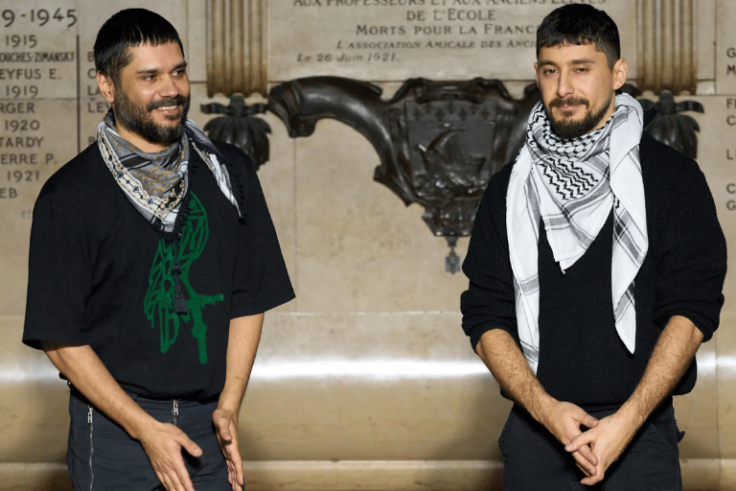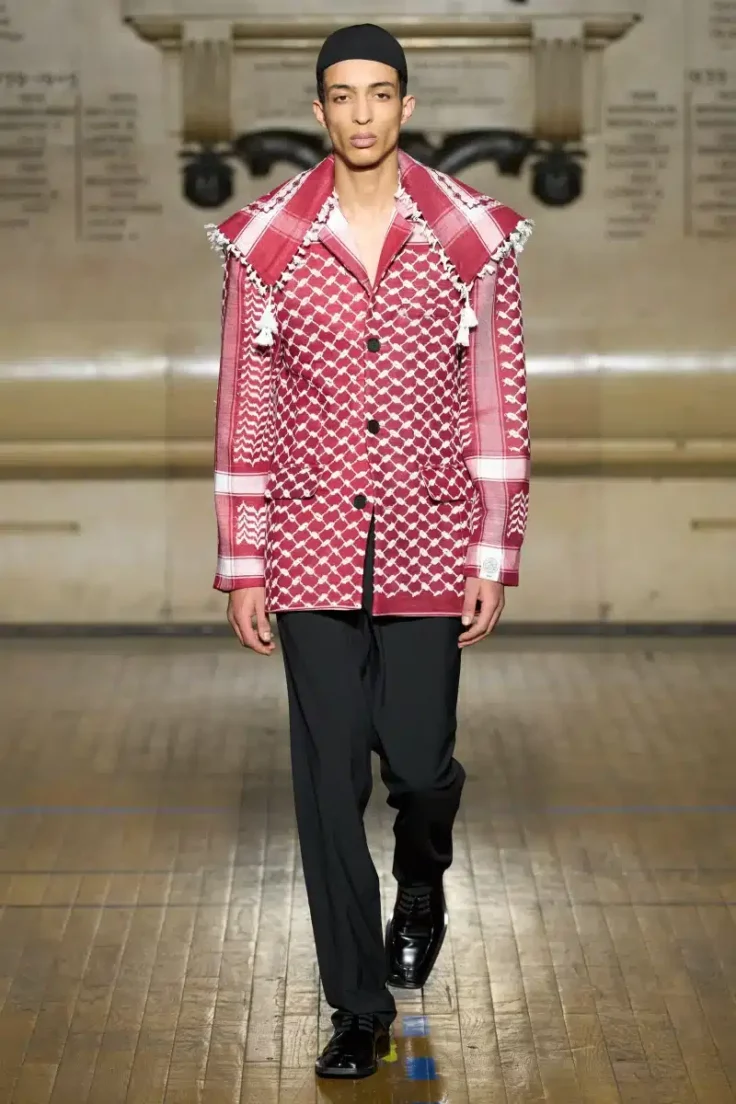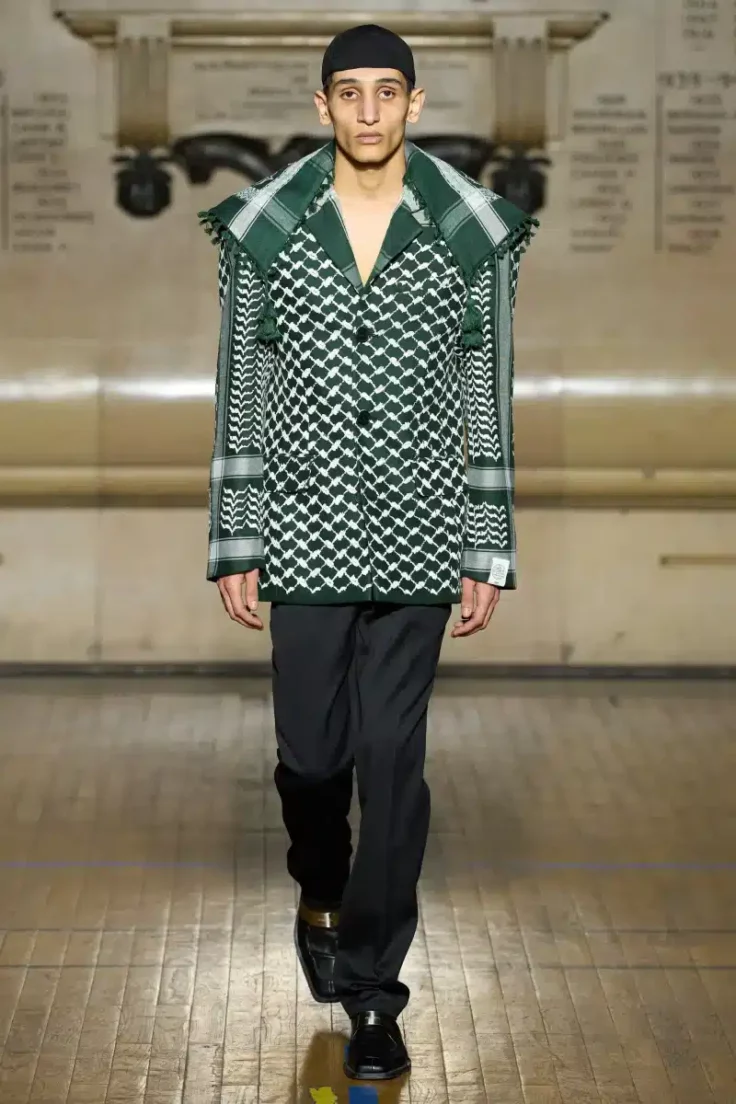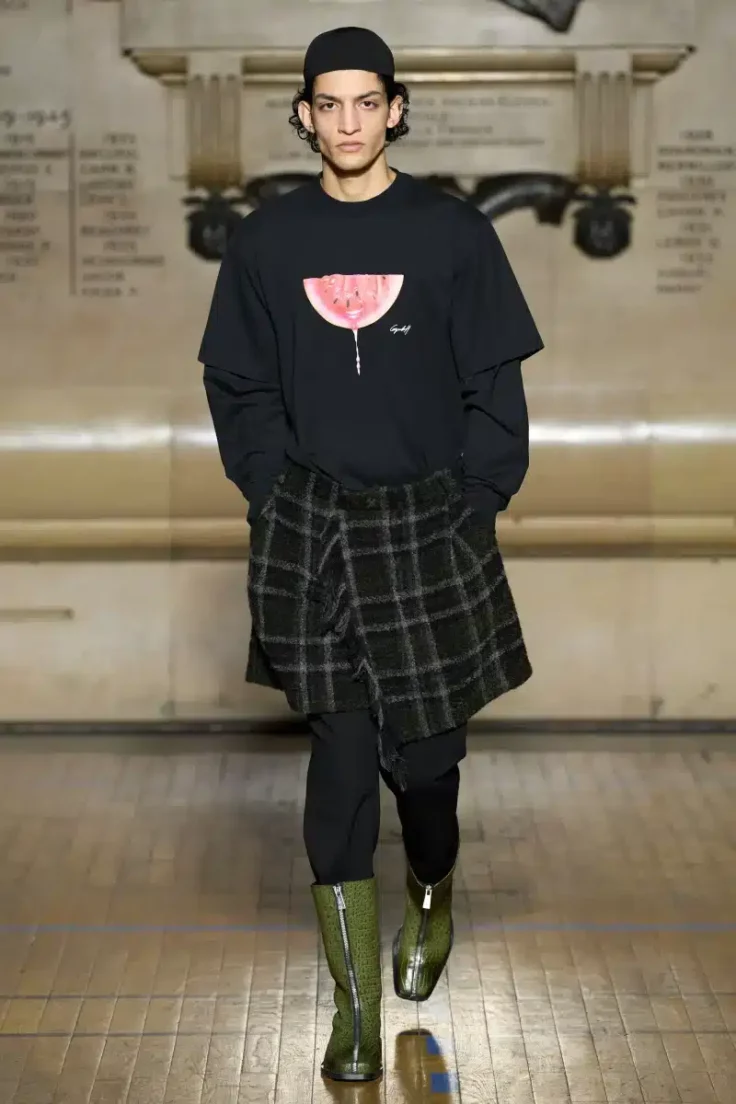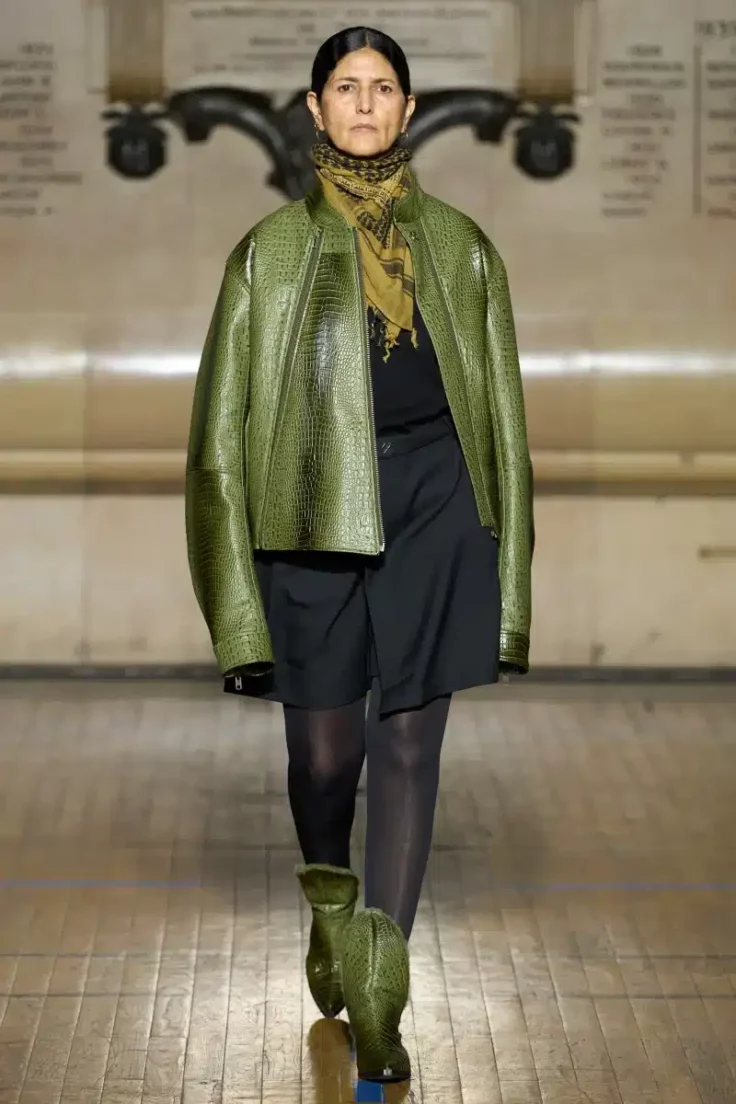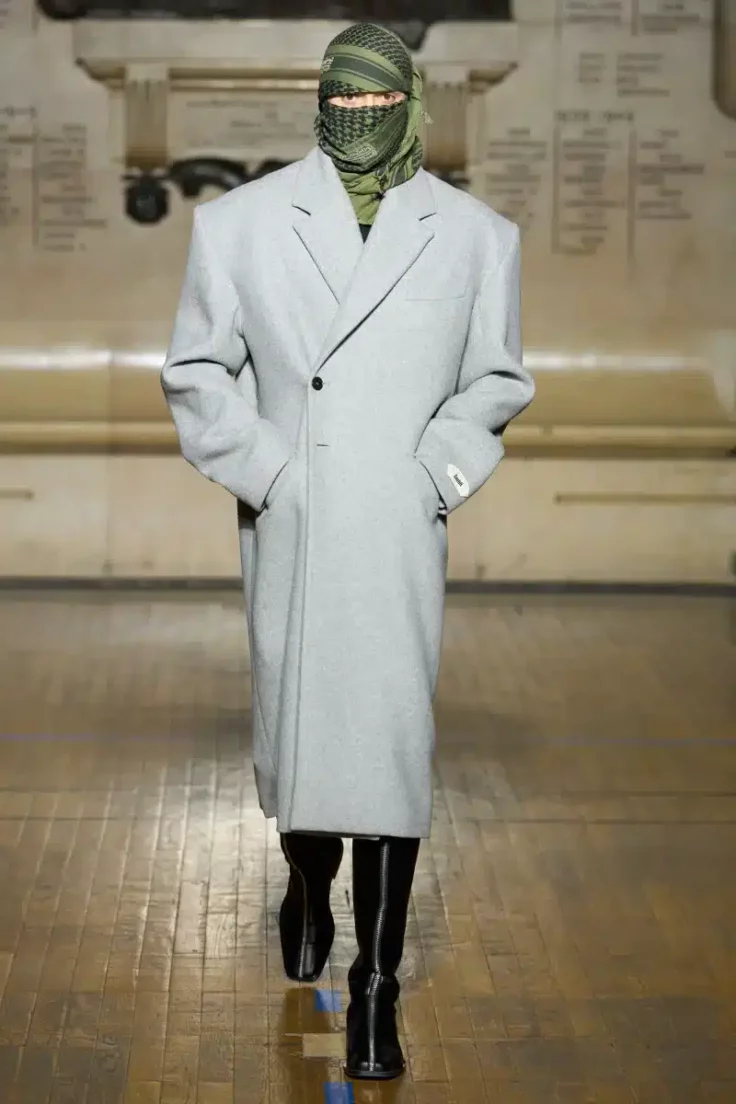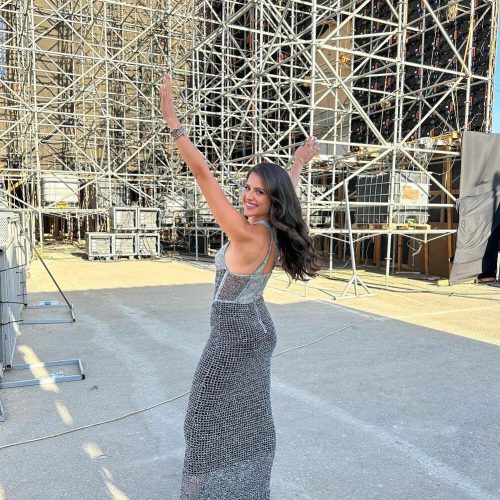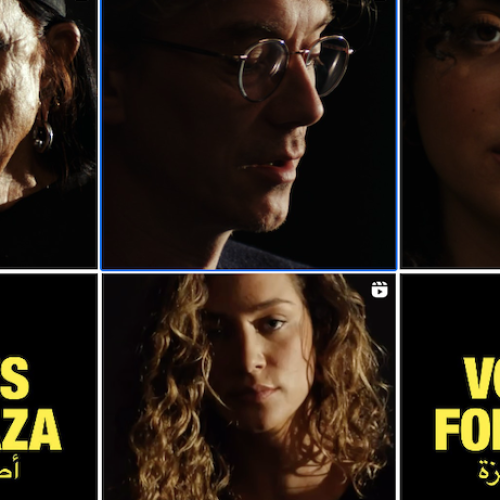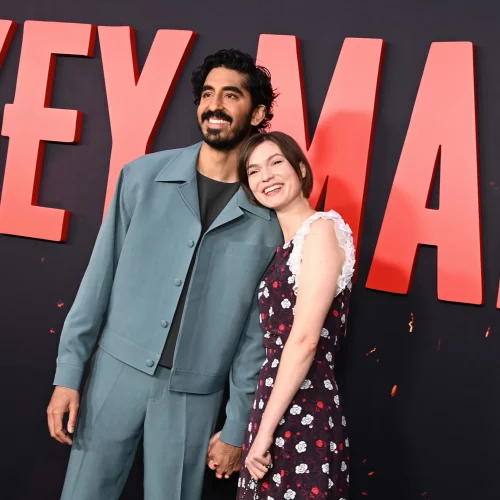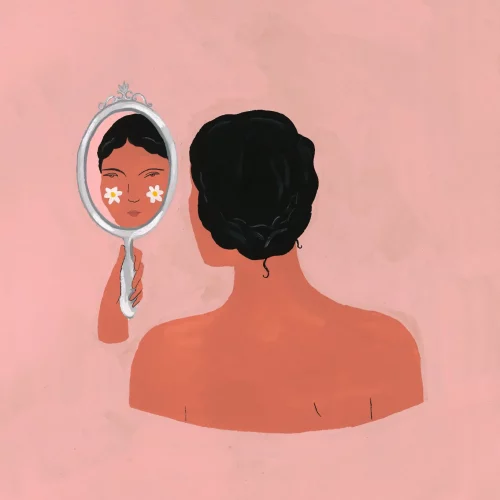Fashion isn’t just about aesthetics– it’s also a powerful tool of expression that, somewhere along the way, seemed to lose its political edge. Fashion used to be a bold declaration, challenging and manipulating societal norms, tackling global issues head-on, inciting conversations, and proving itself to be the powerful art form that it is, but it seems to have lost its thrill of unpredictability and storytelling in recent years. So imagine our (pleasant) surprise when GmBh decided to close Paris Men’s Fashion Week by showing solidarity with Palestine with a collection titled ‘United Nations’.
The Berlin-based menswear brand, founded by Serhat Işık and Benjamin Huseby, took a bold stance by calling for a ceasefire on their Fall 2024 ready-to-wear runway. In an industry often detached from global issues, GmbH’s collection serves as a poignant reminder that beyond the fashion week glamour, millions face the harsh reality of genocide in Gaza.
In a 2018 interview, when asked if they were afraid of being political, Işık and Huseby, inspired by the likes of Vivienne Westwood and Alexander McQueen, responded, “No, because we are interested in the political and formal possibilities of fashion as a medium of intercultural exchange.”
This collection is a statement. The Palestinian keffiyeh, symbolizing Palestinian history, trade routes, and cultural significance, adorned the pieces in various forms and colors resembling the Palestinian flag, from blazers, to headwear. Watermelons, emblematic of Palestinian resistance, graced graphic tees. Darkened United Nations logos on GmbH hoodies, asymmetrical crocodile looks, bold jackets with exaggerated shoulders, and experimental knits rounded out the collection, each piece meticulously styled against the soundtrack of sentimental Arabic music.
The design duo opened their show with a powerful speech, recounting their immigrant and religious backgrounds. “We have called for a ceasefire, a release of all hostages, a free Palestine, and an end to the occupation,” declared the designers, emphasizing these demands as uncontroversial calls for justice.
The collection was the modern-day example of how fashion as an art form should be utilized as a tool for social and political commentary, reminding the world that, yes, even during Fashion Week, millions are still being forcibly displaced, killed, and starved under dire circumstances.
The recent show was reminiscent of the days of the late British icons Vivienne Westwood and Malcolm McLaren, the duo imbued all of their collections with a political statement. From the moment Westwood and McLaren opened their shop on Kings Road, they breathed life into the punk movement, infusing every piece with a profound political statement. From there, her runway wasn’t just a showcase of garments, it was a platform for dissent, discussion, and reflection. From strongly advocating for climate change to communicating her dissent for the late British Prime Minister Margaret Thatcher, Westwood always had something to say, and we wanted to hear every last bit of it.
Alongside Westwood, late British designer Alexander McQueen, was also a provocateur who thrived on shock value. Over his illustrious 18-year career, McQueen wasn’t just a designer, he was a master storyteller. From the controversial Fall 1995 collection titled “Highland Rape,” a bold statement on England’s historical violation and oppression of Scotland, to the avant-garde Spring 2001 collection dubbed “Voss,” featuring a compelling display of mental illness and its treatment by policymakers within a glass box, McQueen pushed the boundaries of fashion. His creations had a purpose beyond the runway, aiming to unsettle, provoke, and ignite contemplation. As he once expressed, “I don’t want to do a cocktail party. I’d rather people leave my shows and vomit.”





